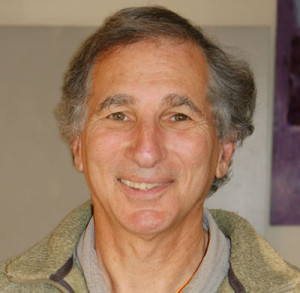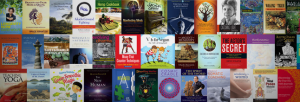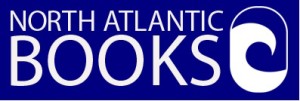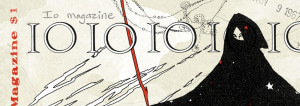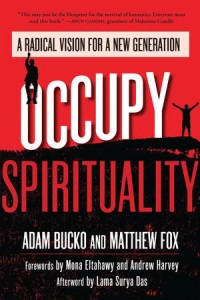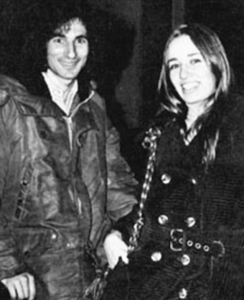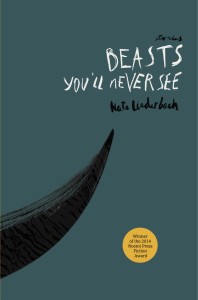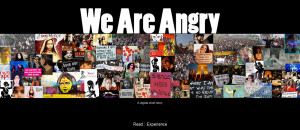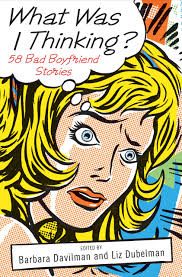David Wilk Interviews Richard Grossinger of North Atlantic Books
May 22, 2016 by David
Filed under Publishing History, PublishingTalks, The Future
Publishing Talks began as a series of conversations with book industry professionals and others involved in media and technology about the future of publishing, books, and culture. As we continue to experience disruption and change in all media businesses, I’ve been talking with some of the people involved in our industry about how publishing might evolve as our culture is affected by technology and the larger context of civilization and economics.
I’ve now expanded the series to include conversations that go beyond the future of publishing. I’ve talked with editors and publishers who have been innovators and leaders in independent publishing in the past and into the present, and will continue to explore the ebb and flow of writing, books, and publishing in all sorts of forms and formats, as change continues to be the one constant we can count on.
It’s my hope that these conversations can help us understand the outlines of what is happening in publishing and writing, and how we might ourselves interact with and influence the future of publishing as it unfolds.
Over the past few years, I’ve talked to a number of independent publishers in an effort to document the extraordinary period of the past 40 years, which has been a sort of golden age of innovation and creativity, as publishing has literally been redefined. The number of great publishers established during this time in almost every category of publishing is pretty incredible.
One of the presses that has had a special impact on my own work is North Atlantic Books, founded by Richard Grossinger and Lindy Hough, as a transformation of their literary journal, Io, which they began together in 1965 as undergraduates at Amherst and Smith Colleges respectively. Richard and Lindy have been important mentors, friends, and colleagues to me for more than forty years, and their influence on my thinking about writing, ideas and books has been profound.
Since both Richard and Lindy are writers and editors with their own individual interests and styles, I thought it would make sense to interview each of them separately for this Publishing Talks series of conversations. Each of these conversations can stand independently or together. They tell two versions of an almost mythologic story, which I hope listeners will find as compelling as it was for me when I spoke to them.
Io is one of a number of influential literary magazines established in the sixties and seventies, publishing poets, film-makers and visual artists, many of whom were related to what has become known as the New American Poets, with influences ranging from Black Mountain College and the New York School to hermeticism and mystical spirituality. Io was singular in that it was most frequently a one-subject magazine, and this led eventually to the establishment of North Atlantic Books, which was incorporated in 1974 as a non-profit literary publisher in California.
Richard Grossinger was born November 3, 1944, and grew up in Manhattan. He graduated from Amherst College in June 1966 with a B.A. in English. That same month he married Lindy Hough, who attended Smith College in Northampton, Massachusetts.
He received a Ph.D. in anthropology from the University of Michigan for an ethnography incorporating economic and ecological studies of fishing communities in Eastern Maine and subsequently taught anthropology and other subjects at the University of Maine and Goddard College.
Io published 23 issues through 1976 before merging with North Atlantic and converting its publications to anthologies thereafter. Richard and Lindy served as the co-publishers of North Atlantic Books from 1974 onward, and Grossinger now functions mainly as acquisitions editor, while the press is run by its staff and board of directors.
Grossinger is the author of many books including Planet Medicine, The Night Sky, Embryogenesis, New Moon, Migraine Auras, On the Integration of Nature, and The Bardo of Waking Life.
This is the “official” description of North Atlantic Books, taken from its website:
North Atlantic Books is a nonprofit publisher committed to an eclectic exploration of the relationships between mind, body, spirit, and nature. Founded in 1974 by Richard Grossinger and Lindy Hough, NAB aims to nurture a holistic view of the arts, sciences, humanities, and healing. Over the decades, it has been at the forefront of publishing a diverse range of books in alternative medicine, ecology, and spirituality. NAB is the publishing program of the Society for the Study of Native Arts and Sciences, a 501(c)(3) nonprofit educational organization that promotes cross-cultural perspectives linking scientific, social, and artistic fields. With more than one thousand books in print, NAB has operated from Berkeley, California, since 1977.
My conversation with Richard Grossinger was recorded in December, 2016. This interview runs 52 minutes.
More about Richard Grossinger here.
Richard’s history of North Atlantic Books is on his website here. Companion interview with co-editor and co-publisher Lindy Hough is here.
Podcast: Play in new window | Download
David Wilk interviews Lindy Hough of North Atlantic Books and Io Magazine
May 9, 2016 by David
Filed under Ebooks and Digital Publishing, Publishing History, PublishingTalks, The Future
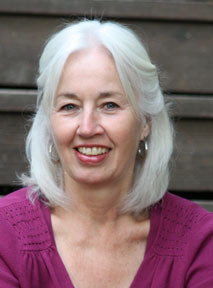 Publishing Talks began as a series of conversations with book industry professionals and others involved in media and technology about the future of publishing, books, and culture. As we continue to experience disruption and change in all media businesses, I’ve been talking with some of the people involved in our industry about how publishing might evolve as our culture is affected by technology and the larger context of civilization and economics.
Publishing Talks began as a series of conversations with book industry professionals and others involved in media and technology about the future of publishing, books, and culture. As we continue to experience disruption and change in all media businesses, I’ve been talking with some of the people involved in our industry about how publishing might evolve as our culture is affected by technology and the larger context of civilization and economics.
I’ve now expanded the series to include conversations that go beyond the future of publishing. I’ve talked with editors and publishers who have been innovators and leaders in independent publishing in the past and into the present, and will continue to explore the ebb and flow of writing, books, and publishing in all sorts of forms and formats, as change continues to be the one constant we can count on.
It’s my hope that these conversations can help us understand the outlines of what is happening in publishing and writing, and how we might ourselves interact with and influence the future of publishing as it unfolds.
Over the past few years, I’ve talked to several independent publishers in an effort to document the extraordinary period of the past 40 years, which has been a kind of golden age of innovation and creativity as publishing has literally been redefined. The list of great publishers established during this time in almost every category of publishing is amazing.
One of those presses that has had a special impact on my own work is North Atlantic Books, founded by Richard Grossinger and Lindy Hough as an outgrowth of their literary journal called Io, which they began together in 1965 when they were undergraduates at Amherst and Smith Colleges respectively. Richard and Lindy have been mentors, friends, and colleagues of mine for more than forty years, and their influence on my thinking about writing, ideas and books has been profound.
Since both Richard and Lindy are writers and editors with their own individual interests and styles, I thought it would make sense to interview each of them separately for this series of conversations. These two conversations can stand independently or together. They tell two versions of an amazing and almost mythologic story, which I hope listeners will find as compelling as it was for me when I spoke to them.
Io Magazine traveled with Lindy and Richard, moving to Michigan, Maine, Vermont and eventually California. Io is one of a number of influential literary magazines established in the sixties and seventies, publishing poets, film-makers and visual artists, many of whom were related to what has become known as the New American Poets, with influences ranging from Black Mountain College and the New York School to hermeticism and mystical spirituality. Io was singular in that it was most frequently a one-subject magazine, and this led eventually to the establishment of North Atlantic Books, which was incorporated in 1974 as a non-profit literary publisher in California.
North Atlantic Books has become one of the most successful and influential independent presses in America with a strong focus on spirituality and alternative health, while continuing its commitment to literary publishing.
Lindy graduated from Smith College and received an MFA in Creative Writing at Goddard College. She is the author of seven books of poetry, non-fiction, and fiction (including one book I published in 1978, the excellent Outlands & Inlands). She has taught literature and writing in Michigan, Maine, Vermont and California, and is currently finishing a novel.
This is the “official” description of North Atlantic Books, taken from its website:
North Atlantic Books is a nonprofit publisher committed to an eclectic exploration of the relationships between mind, body, spirit, and nature. Founded in 1974 by Richard Grossinger and Lindy Hough, NAB aims to nurture a holistic view of the arts, sciences, humanities, and healing. Over the decades, it has been at the forefront of publishing a diverse range of books in alternative medicine, ecology, and spirituality. NAB is the publishing program of the Society for the Study of Native Arts and Sciences, a 501(c)(3) nonprofit educational organization that promotes cross-cultural perspectives linking scientific, social, and artistic fields. With more than one thousand books in print, NAB has operated from Berkeley, California, since 1977.
Richard and Lindy are now retired from full time work with the press they founded, and each is now actively writing and editing books.
Our conversation was recorded in December, 2016. (55 minutes runtime)
Podcast: Play in new window | Download
David Wilk interviews John Ingram of Ingram Content Group
April 18, 2016 by David
Filed under Ebooks and Digital Publishing, PublishingTalks, Technology, The Future
 Publishing Talks began as a series of conversations with book industry professionals and others involved in media and technology about the future of publishing, books, and culture. As we continue to experience disruption and change in all media businesses, I’ve been talking with some of the people involved in our industry about how publishing might evolve as our culture is affected by technology and the larger context of civilization and economics.
Publishing Talks began as a series of conversations with book industry professionals and others involved in media and technology about the future of publishing, books, and culture. As we continue to experience disruption and change in all media businesses, I’ve been talking with some of the people involved in our industry about how publishing might evolve as our culture is affected by technology and the larger context of civilization and economics.
I’ve now expanded the series to include conversations that go beyond the future of publishing. I’ve talked with editors and publishers who have been innovators and leaders in independent publishing in the past and into the present, and will continue to explore the ebb and flow of writing, books, and publishing in all sorts of forms and formats, as change continues to be the one constant we can count on.
It’s my hope that these conversations can help us understand the outlines of what is happening in publishing and writing, and how we might ourselves interact with and influence the future of publishing as it unfolds.
This, my latest in this series of interviews with publishers and editors is a conversation with John Ingram, the chairman of Ingram Content Group Inc., which is now both the largest wholesaler in the book industry, and with its Lightning Source digital printing division, also the largest printer of print on demand books in the world. In addition, with the recent acquisition of Perseus Distribution, Publishers Group West, Legato and Consortium, Ingram is the largest distributor of independent publishers in all markets worldwide. Ingram also operates IngramSpark, which is now a major provider for self publishing authors.
Clearly Ingram is now pivotal to the book industry, as a key supplier of services, logistics and infrastructure to virtually every element and category within the business.
John Ingram deserves significant credit for recognizing the need for ongoing innovation and change in the book supply chain. Ingram Book Company and Lightning Source are both technology oriented operations, and with John’s leadership, the company has invested in a long list of important initiatives that have made major contributions to the growth and development of book publishing and distribution.
While many look at logistics and supply chains as boring necessities, I’d argue that they are very often the key elements of business success, and Ingram’s dedicated focus on invention, improvement and efficiency have been critical to keeping book publishing workable in a period of massive disruption.
John is a graduate of Princeton University, where he received his bachelor of arts degree in English in 1984. In 1986, he received his master of business administration degree from the Owen Graduate School of Management at Vanderbilt University.
John joined the family business, Ingram Industries Inc., in 1986, serving as the Assistant Treasurer and later as President of Tennessee Book Company (which became part of Ingram Content Group in 2009). He later served as President of Ingram Book Company, Vice President of Purchasing for Ingram Micro Europe, and Director of Purchasing for Ingram Micro Inc.
It is no small thing to foster innovation and experimentation inside a large company. It requires committed leadership and a willingness to both imagine a future and risk failures, learn from experiences both good and bad, constantly being aware of the broader picture of your industry and cultural trends, yet still maintaining focus on the core elements of your own business. None of this is easy.
I wanted to talk to John about some of the ways he and the Ingram companies have been able to manage change, and also to tap into his vision – how he sees the future of publishing and book distribution unfolding over the next few years. It is my pleasure to present this conversation with John Ingram for Publishing Talks, as part of my effort to document the key elements of a changing media environment as the book business moves into the future.![]()
![]()

Podcast: Play in new window | Download
David Wilk talks with Jane Friedman
November 30, 2015 by David
Filed under Ebooks and Digital Publishing, Publishing History, PublishingTalks, Technology, The Future
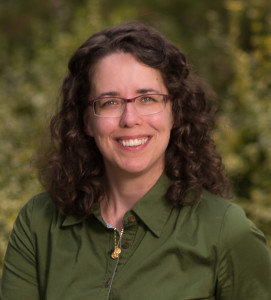 Publishing Talks began as a series of conversations with book industry professionals and others involved in media and technology about the future of publishing, books, and culture. As we continue to experience disruption and change in all media businesses, I’ve been talking with some of the people involved in our industry about how publishing might evolve as our culture is affected by technology and the larger context of civilization and economics.
Publishing Talks began as a series of conversations with book industry professionals and others involved in media and technology about the future of publishing, books, and culture. As we continue to experience disruption and change in all media businesses, I’ve been talking with some of the people involved in our industry about how publishing might evolve as our culture is affected by technology and the larger context of civilization and economics.
I’ve now expanded the series to include conversations that go beyond the future of publishing. I’ve talked with editors and publishers who have been innovators and leaders in independent publishing in the past and into the present, and will continue to explore the ebb and flow of writing, books, and publishing in all sorts of forms and formats, as change continues to be the one constant we can count on.
It’s my hope that these conversations can help us understand the outlines of what is happening in publishing and writing, and how we might ourselves interact with and influence the future of publishing as it unfolds.
There are two Jane Friedmans in the book business, which has caused no end of confusion for all sorts of people and many occasions (even Google can’t figure this one out).
One Jane Friedman is the well known and iconic publishing executive who is the founder and CEO of Open Road Media, a leading digital book publisher. The “other” Jane Friedman, whose work I have been following for a number of years, is an expert in social media and digital marketing who advises and teaches writers in marketing their work and how to be writers in the current rapidly changing environment, as well as working with publishers and others on a wide variety of subjects and concerns. She continually impresses with her intelligence, acuity, passion for writing, and compassion for writers.
This Jane Friedman worked at Writer’s Digest, where she ultimately became publisher and editorial director, and recently she served as the digital editor for the Virginia Quarterly Review, where she led a digital overhaul of the magazine. She is now teaching digital media and publishing at the University of Virginia and writes a column for Publishers Weekly (I frequently have recommended her smartly written columns). The Great Courses has released her 24-lecture series, How to Publish Your Book and she has a book of her own forthcoming from the University of Chicago Press called The Business of Being a Writer (2017).
Given that her thinking, writing and teaching has placed her in position to know a great deal about how things are for writers these days, I thought it would be good to talk to the “other” Jane Friedman for Publishing Talks. Our stimulating conversation follows. What Jane has to say will be valuable and important for writers and publishers alike.
You can follow Jane Friedman at her website, where she offers a myriad of insightful, practical and useful information, advice for free, and also online courses and consulting services at very reasonable rates.
Nice quote from Jane on her site: “The 3 things very important to me: compassion, service, and independence. I avoid environments (or people) lacking these qualities, especially organizations without a strong service component—a strong why—driving their work-play.”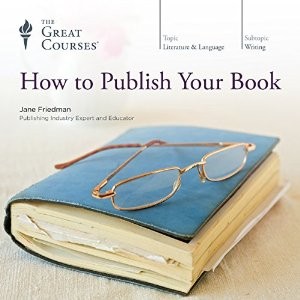
Podcast: Play in new window | Download
David Wilk talks with Carmen Giménez Smith of Noemi Press at Woodland Pattern
November 11, 2015 by David
Filed under Publishing History, PublishingTalks, The Future
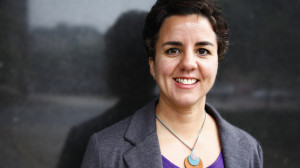 Publishing Talks began as a series of conversations with book industry professionals and others involved in media and technology about the future of publishing, books, and culture. As we continue to experience disruption and change in all media businesses, I’ve been talking with some of the people involved in our industry about how publishing might evolve as our culture is affected by technology and the larger context of civilization and economics.
Publishing Talks began as a series of conversations with book industry professionals and others involved in media and technology about the future of publishing, books, and culture. As we continue to experience disruption and change in all media businesses, I’ve been talking with some of the people involved in our industry about how publishing might evolve as our culture is affected by technology and the larger context of civilization and economics.
I’ve now expanded the series to include conversations that go beyond the future of publishing. I’ve talked with editors and publishers who have been innovators and leaders in independent publishing in the past and into the present, and will continue to explore the ebb and flow of writing, books, and publishing in all sorts of forms and formats, as change continues to be the one constant we can count on.
It’s my hope that these conversations can help us understand the outlines of what is happening in publishing and writing, and how we might ourselves interact with and influence the future of publishing as it unfolds.
I recently had the honor of interviewing editor, writer and teacher Carmen Giménez Smith at the renowned Woodland Pattern Book Center in Milwaukee, Wisconsin. Carmen is the current editor of the now 50 year old literary magazine, Puerto del Sol, sponsored by New Mexico State University in Las Cruces. She is also the co-publisher and co-founder of the very fine literary publisher, Noemi Press.
Our conversation took place in on Friday, October 16, 2015 at Woodland Pattern in front of an active and interested audience. This live recording will enable listeners to learn a great deal about two dynamic literary organizations. Happy 50th birthday to Puerto del Sol, and congratulations to Carmen and her colleagues at Noemi for building a long lasting press that has been purposely constructed so that it will continue as a dynamic, living organization long into the future.
More about Carmen Giménez Smith here; she is an extraordinary poet, writer and teacher in addition to her work as editor and publisher. Her newest book is called Milk and Filth from the University of Arizona Press. She is a brilliant writer whose writing I have been grateful to discover. She is tough and politically engaged, her heart and soul showing through the words at every moment. I am sure she is a terrific teacher as well.
Length alert: this conversation is about 53 minutes. I hope you can find the time to hear it through to the end.
And special thanks to Chuck, Mike, Karl and Anne at Woodland Pattern for the opportunity to conduct this conversation in their space. It was really fun and I hope to be able to do this kind of thing again.
More about WP in this Writerscast interview with founders Anne Kingsbury and Karl Gartung from earlier this year.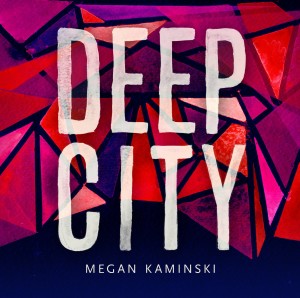
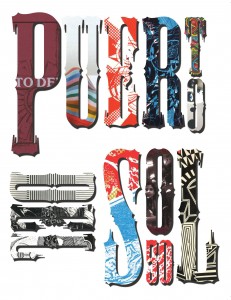

Podcast: Play in new window | Download
David Wilk talks with Justo Hidalgo of 24symbols
July 19, 2015 by David
Filed under Ebooks and Digital Publishing, PublishingTalks, Technology, The Future
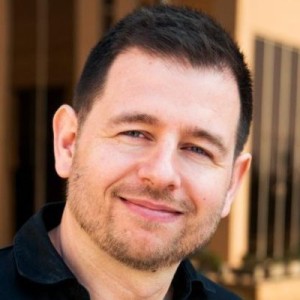 Publishing Talks began as a series of conversations with book industry professionals and others involved in media and technology about the future of publishing, books, and culture. As we continue to experience disruption and change in all media businesses, I’ve been talking with some of the people involved in our industry about how publishing might evolve as our culture is affected by technology and the larger context of civilization and economics.
Publishing Talks began as a series of conversations with book industry professionals and others involved in media and technology about the future of publishing, books, and culture. As we continue to experience disruption and change in all media businesses, I’ve been talking with some of the people involved in our industry about how publishing might evolve as our culture is affected by technology and the larger context of civilization and economics.
I’ve now expanded the series to include conversations that go beyond the future of publishing. I’ve talked with editors and publishers who have been innovators and leaders in independent publishing in the past and into the present, and will continue to explore the ebb and flow of writing, books, and publishing in all sorts of forms and formats, as change continues to be the one constant we can count on.
It’s my hope that these conversations can help us understand the outlines of what is happening in publishing and writing, and how we might ourselves interact with and influence the future of publishing as it unfolds.
24symbols is a service to read and share digital books in the cloud, working in any reading device that has an internet connection, and that gives users access to an international and multi-publisher’s catalogue – essentially a subscription model that competes with other subscription services like Scribd, Oyster and Amazon to provide readers with easy access to ebooks for a low monthly fee (currently $8.95 US) and of course provides publishers with access to readers outside of the traditional “buy one copy” model that is still the predominant form of book commerce. The offering to readers is pretty clearly described here. Of course, in terms of competition, it’s not just the other subscription services they are up against, but mainly the hegemony of dedicated reading devices and apps where readers are so used to shopping for ebooks.
24symbols, based in Spain, and strongest in Europe, has over 200,000 titles (and growing fairly quickly), and is now making inroads into the US market. It seems to me that a diversity of business models and ultimately some different ways for readers to read digitally is going to be a necessary groundwork for the growth in e-reading that so many in publishing have thought would have arrived by now.
Justo Hidalgo is a co-founder of 24symbols, a technologist and book lover, and someone whose thinking and energy I have long admired. I wanted to find out more about this company, and its plans for the future, as well as Justo’s current thinking about ebooks and digital reading. This interview will not disappoint those who are interested in different perspectives on the current digital book environment. Justo provides a broad range of stimulating ideas here.
Aside from 24symbols, Justo also teaches Product Strategy and Innovation at the Master’s Degree program in Industrial Design of Nebrija University, and Technology for Managers at the Nebrija Business School in Madrid, Spain. Justo is member of the Internet Society and Board Member and Mentor at Tetuan Valley.
Justo holds a Ph.D. from the University of A Coruña, Spain and a B.S. in Computer Science by the Autonomous University of Madrid, Spain. He has received training in Product Management, Product Marketing, Innovation and Creativity in the universities of Stanford and University of California Berkeley.
Some of his work and thoughts can be viewed on Twitter (@justohidalgo), his blog (in Spanish) and here (in English).
My apologies to listeners, as there were some recording difficulties with this interview, and while our fantastic tech team has done a great job cleaning it up, there are still some low level background noises during some parts of the interview.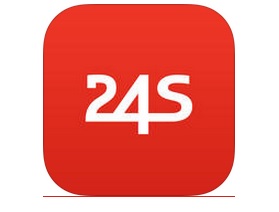
Podcast: Play in new window | Download
David Wilk talks with Sherisse Hawkins from Beneath the Ink
June 22, 2015 by David
Filed under Ebooks and Digital Publishing, PublishingTalks, Technology, The Future
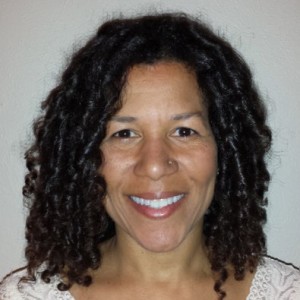 Publishing Talks began as a series of conversations with book industry professionals and others involved in media and technology about the future of publishing, books, and culture. As we continue to experience disruption and change in all media businesses, I’ve been talking with some of the people involved in our industry about how publishing might evolve as our culture is affected by technology and the larger context of civilization and economics.
Publishing Talks began as a series of conversations with book industry professionals and others involved in media and technology about the future of publishing, books, and culture. As we continue to experience disruption and change in all media businesses, I’ve been talking with some of the people involved in our industry about how publishing might evolve as our culture is affected by technology and the larger context of civilization and economics.
It’s my hope that these conversations can help us understand the outlines of what is happening in publishing and writing, and how we might ourselves interact with and influence the future of publishing as it unfolds.
Sherisse Hawkins is co-founder with Alex Milewski of Beneath the Ink, a Boulder, Colorado based ebook technology company. Beneath the Ink is working on what is likely the next phase in ebook development evolution, which is the provision of tools that enable authors and publishers to easily create ebooks with interactive content and multimedia resources. As Sherisse says in our interview, the story must and will remain the core of the book, but there are many types of books where the reading experience can be meaningfully expanded with the addition of expanded content.
This concept is not new of course, but what differentiates Beneath the Ink is the way their technology integrates the additional material to enable the reader to choose whether to engage or not, and making sure the presence of the option is not distracting to the reader. Their proprietary technology creates what they call “binks,” which contain the media content within the book file, as opposed to simply being a link out to the open web (which is, of course, also always enabled in epubs and mobi files). Another other key offering is to make it easy for creators to manage their own ebook media production process simply and easily.
I think it makes sense to enable this sort of feature in the digital reading experience. Not all readers want to “go deeper” or be taken out of the main text. But many others do. In a way it’s like having enhanced footnotes – and many of us do enjoy a good footnote to enhance our understanding of the text at hand. Fiction is another matter and is likely going to be a much greater challenge both for writers and for readers. But again, there are plenty of readers who do enjoy taking side trips from the main text, perhaps to better understand a character or a place inside a novel.
Beneath the Ink creates the tools for expanded reading experiences; of course, it remains to be seen how they are used and deployed by creators, and appreciated by readers. Aside from Binks, Beneath the Ink now has a new product called PageDip, which enables the one-click creation and has also created the option for users to offer their ebooks as hosted WebBooks, essentially untethering the reading experience from devices and apps, something that many in the ebook development world have been promoting for a number of years.
Beneath the Ink appeared on Shark Tank April 17, 2015! heavy.com did an interview with Sherisse about her appearance.
I like what this company is doing and have done some experimenting with their technology for my clients. I wanted to talk to Sherisse about her vision for the future of digital publishing and also to learn more about her experiences in creating technology and offering it to the publishing community. Beneath the Ink has done a great deal of research into the ways that readers prefer to interact with digital content and Sherisse and her team have developed their software accordingly. Her insights into the ways that digital reading is evolving are very worthwhile to hear.
Sherisse is the former VP of software development at Time Warner cable and was a Senior Electrical Engineer in the Walt Disney Imagineering Show and Ride division, responsible for the design, development, and installation of attractions in four major Disney theme parks. She received a BS degree in Engineering from the University of Arizona, and earned a Masters in Engineering Management from the University of Colorado. Alex Milewski is the other co-founder of Beneath The Ink. His background is in web and mobile application development using Javascript, PHP, CSS3, HTML5 and many other programming languages. Beneath the Ink is based in Boulder, Colorado.
Podcast: Play in new window | Download
David Wilk talks with Lyndee Prickitt about We Are Angry
June 7, 2015 by David
Filed under Ebooks and Digital Publishing, PublishingTalks, Technology, The Future
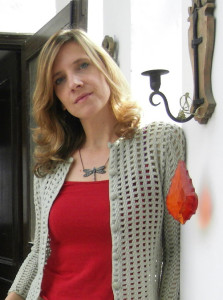 Lyndee Prickitt’s powerful and engaging storytelling project, We Are Angry, fits readily into both the categories of interviews I am doing here – she’s both the author of the (book) project as well as the primary publishing impressario who put together an innovative form of digital storytelling. But the interview does need to go into just one category, so I have chosen to call it a Publishing Talks interview. Publishing Talks began as a series of conversations with book industry professionals and others involved in media and technology about the future of publishing, books, and culture; Lyndee Prickett’s work is an important addition to that conversation.
Lyndee Prickitt’s powerful and engaging storytelling project, We Are Angry, fits readily into both the categories of interviews I am doing here – she’s both the author of the (book) project as well as the primary publishing impressario who put together an innovative form of digital storytelling. But the interview does need to go into just one category, so I have chosen to call it a Publishing Talks interview. Publishing Talks began as a series of conversations with book industry professionals and others involved in media and technology about the future of publishing, books, and culture; Lyndee Prickett’s work is an important addition to that conversation.
We Are Angry is a fictional response to the very real and difficult issues of rape and abuse of women in modern India.
From the We Are Angry website:
“After the brutal December 16, 2012 gang-rape in New Delhi, many people in India and beyond felt a need to express their anger, fears and concerns about why this was happening. Women and men took to the streets to put a voice to their anger. Social media swelled with introspection and pontification. Anonymous mourners created real life and online commemorations. Movie stars satirized and campaigned. Artists painted street walls and canvasses. Actors staged plays in local parks and international cultural festivals. Screenwriters wrote movies. Singers sang.
The conversation across the nation changed. Women and their rights was not just a matter for earnest do-gooders and NGOs, but the topic du jour and the inspiration for a panoply of expression for weeks and months. And then the din quietened. People tired of talking about how women, at home and abroad, have been and should be treated.
We Are Angry is an effort to keep the conversation alive – fusing traditional fictional text storytelling with other media, bolstered by real news content and annotations, and showcasing a range of art and expression from a team of people who want to harness their anger and work creatively for change.”
Lyndee Prickitt is a multimedia writer and journalist. She created her company, Digital Fables, to tell stories using the web as a platform. After working with Reuters and the BBC for more than 15 years, she wrote and produced the award winning digital short-story, Weareangry.net. Though a native Texan, Prickitt lives in New Delhi with her Indian husband and their daughter.
We Are Angry was nominated for a Webby, won the Transmedia Story of the Year from Digital Book World, and was a runner up in the New Media Writing Prize. The Guardian newspaper called it “devastatingly powerful.”
There has been a great deal of discussion within the international ebook community about whether digital storytelling will migrate away from devices and out to the web. What Lyndee Prickitt has done with We Are Angry is a powerful example of how this can be done. When you land on the site, you are immediately offered two options, one to “read” and the other to “experience” the story. I suspect most readers choose first to experience the story.
I really like what she says on the We Are Angry site about this project:
“We are living in mixed media times and yet rarely do we find the media coalescing in a truly integrated and artistic way, a way that could take storytelling – especially issue-based storytelling – to another level, not replacing books or the linear text experience, but offering another construct.
We Are Angry is an attempt, a humble first attempt, at doing this: creating 360 degree digital fiction.”
Listen to this interview, then visit the website and experience the story for yourself. Let me know what you think about it.
Podcast: Play in new window | Download
David Wilk talks with Liz Dubelman about Vidlit
May 26, 2015 by David
Filed under Ebooks and Digital Publishing, PublishingTalks, The Future
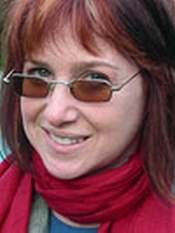 Publishing Talks began as a series of conversations with book industry professionals and others involved in media and technology about the future of publishing, books, and culture. As we continue to experience disruption and change in all media businesses, I’ve been talking with some of the people involved in our industry about how publishing might evolve as our culture is affected by technology and the larger context of civilization and economics.
Publishing Talks began as a series of conversations with book industry professionals and others involved in media and technology about the future of publishing, books, and culture. As we continue to experience disruption and change in all media businesses, I’ve been talking with some of the people involved in our industry about how publishing might evolve as our culture is affected by technology and the larger context of civilization and economics.
I’ve now expanded the series to include conversations that go beyond the future of publishing. I’ve talked with editors and publishers who have been innovators and leaders in independent publishing in the past and into the present, and will continue to explore the ebb and flow of writing, books, and publishing in all sorts of forms and formats, as change continues to be the one constant we can count on.
It’s my hope that these conversations can help us understand the outlines of what is happening in publishing and writing, and how we might ourselves interact with and influence the future of publishing as it unfolds.
My friend, and sometimes colleague, Liz Dubelman is the founder and CEO of VidLit Productions, LLC, a renowned and well regarded book marketing and content-creating company. I’ve been a big fan of her work for a long time, since first coming across her wonderful and hilarious video promotion for the really fun book, Yiddish With Dick and Jane by Ellis Weiner and Barbara Davilman. In fact that video was one of the very earliest book trailers, and was certainly one of the best and most successful of the many that have followed it. As soon as I saw it, I quickly sought out Liz, and discovered how smart she is about online content and communities, and over the years we have collaborated on a number of projects.
From 2011 – 2013 Liz was VP, Production for JibJab Media, the pioneering digital entertainment company that specializes in personalized social expression and has provided laughs to 100 million users worldwide.
Liz co-edited and contributed to What Was I Thinking? 58 Bad Boyfriend Stories, which was based on the VidLit series of the same name. She is also a magazine writer of both fiction and nonfiction. Well over a million people have viewed her short story Craziest on the Web.
Prior to her digital career, she worked for ten years in film production. Her television work won her two Emmys – one as a producer and one as a director. She was the first woman member of the labor negotiating committee of I.A.T.S.E., New York local 644 (cinematographers), and is an establishing member of Women in New Technology.
Liz is now taking Vidlit into new areas of online book marketing and publishing. Vidlit is providing authors with a platform to help them with the challenging and complicated task of self promotion. The supposition, which seems correct to me, is that authors are often best at writing, and while in today’s publishing environment, they need to think about and act like marketers, that is not their core competency, and they will almost always need creative, intelligent and friendly helpers to do this kind of work for them. Vidlit comes from a writer’s imagination and mindset. Liz wants to make writers successful, bring their stories to audiences and she has a good track record of understanding how online media can work. What she has to say about writers and readers interacting in the new media environment is an ideal topic for a Writerscast interview.
I like the simplicity of Vidlit’s mission statement:
“…to make fiction and creative non-fiction indispensable. It’s our belief that stories help our lives to make sense.”
Podcast: Play in new window | Download
David Wilk talks with Dominique Raccah of Sourcebooks
February 1, 2015 by David
Filed under Ebooks and Digital Publishing, Publishing History, PublishingTalks, Technology, The Future
 Publishing Talks began as a series of conversations with book industry professionals and others involved in media and technology about the future of publishing, books, and culture. As we continue to experience disruption and change in all media businesses, I’ve been talking with some of the people involved in our industry about how publishing might evolve as our culture is affected by technology and the larger context of civilization and economics.
Publishing Talks began as a series of conversations with book industry professionals and others involved in media and technology about the future of publishing, books, and culture. As we continue to experience disruption and change in all media businesses, I’ve been talking with some of the people involved in our industry about how publishing might evolve as our culture is affected by technology and the larger context of civilization and economics.
I’ve now expanded the series to include conversations that go beyond the future of publishing. I’ve talked with editors and publishers who have been innovators and leaders in independent publishing in the past and into the present, and will continue to explore the ebb and flow of writing, books, and publishing in all sorts of forms and formats, as change continues to be the one constant we can count on.
It’s my hope that these conversations can help us understand the outlines of what is happening in publishing and writing, and how we might ourselves interact with and influence the future of publishing as it unfolds.
Dominique Raccah is the founder and CEO of independent publisher Sourcebooks, based in Naperville, Illinois, which she began in 1987 after an earlier career in advertising. Reflecting Raccah’s background and interests, Sourcebooks has always been strongly oriented toward marketing and promotion, devoting countless hours and dedicating significant resources to research, intelligence and outreach, and to understanding what customers want. This significantly differentiates Sourcebooks from most other independent publishers, so many of whom are more focused on developing content as opposed to what the customer needs or wants.
But Raccah is more than a smart marketer. She is a highly capable business person, an active entrepreneur, and somewhat of a visionary in terms of technology, business structure. She has been and continues to be willing and able to pivot on her business models and plans much more quickly and readily than most of her peers.
At this stage, after more than a quarter century of successful innovation, she has become a thought leader in the book industry and her presentations about publishing and business structure and opportunities are often models of clarity and deep perception, that are valued by colleagues and competitors alike. In November 2013 she was named FutureBook’s Most Inspiring Digital Publishing Person of 2013.
Indicative of the ways Raccah has embraced technology to drive her business forward, in an interview with the Chicago Tribune last year she said that digital technology “has been transformative because it allows you to tackle new kinds of problems and create new ways of connecting books and readers.”
In our conversation, which took place in New York City in January, 2015, we covered a wide range of topics, from the history of Sourcebooks, through the present business and publishing landscape that interests and motivates Dominique as she continues to moves her company forward in a highly challenging environment. Much of our conversation focuses on Raccah’s industry leading efforts to work directly with readers to make Sourcebooks’ publishing brands meaningful to readers, and to learn directly what consumers want in their reading experiences. After a concerted effort over the past few years, Sourcebooks is now one of the leaders in the book industry in selling books directly to readers. It was a pleasure speaking with Dominique – who gives a great interview – and I hope this is a conversation that will be both useful and valuable to anyone interested in contemporary publishing.
Sourcebooks features a long list of innovative and successful publishing programs and projects, including Poetry Speaks, The Shakesperience, an interactive iBook that combines audio, video and a glossary to aid understanding of Shakespeare’s plays, and Put Me In The Story, which customizes children’s picture books with the reader’s own name and photos to get kids excited about reading.
Raccah has a master’s degree in quantitative psychology from the University of Illinois at Chicago Circle and worked at Leo Burnett’s quantitative research department before starting Sourcebooks in her home in 1987.
Sourcebooks now has 120 employees, eight imprints and publishes more than 350 titles annually, several of which have been national best-sellers in recent years.
Some worthwhile links:
Dominique’s TedX slideshare The Book in Transformation: A Publisher Vision for the Future
Chicago Tribune interview with Dominique Raccah
Mercy Pilkington article Sourcebooks Dominique Raccah Speaks on Driving Innovation
Put Me in the Story site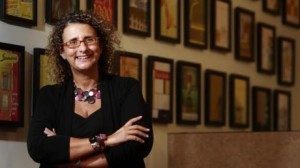
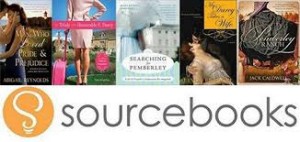
Podcast: Play in new window | Download

